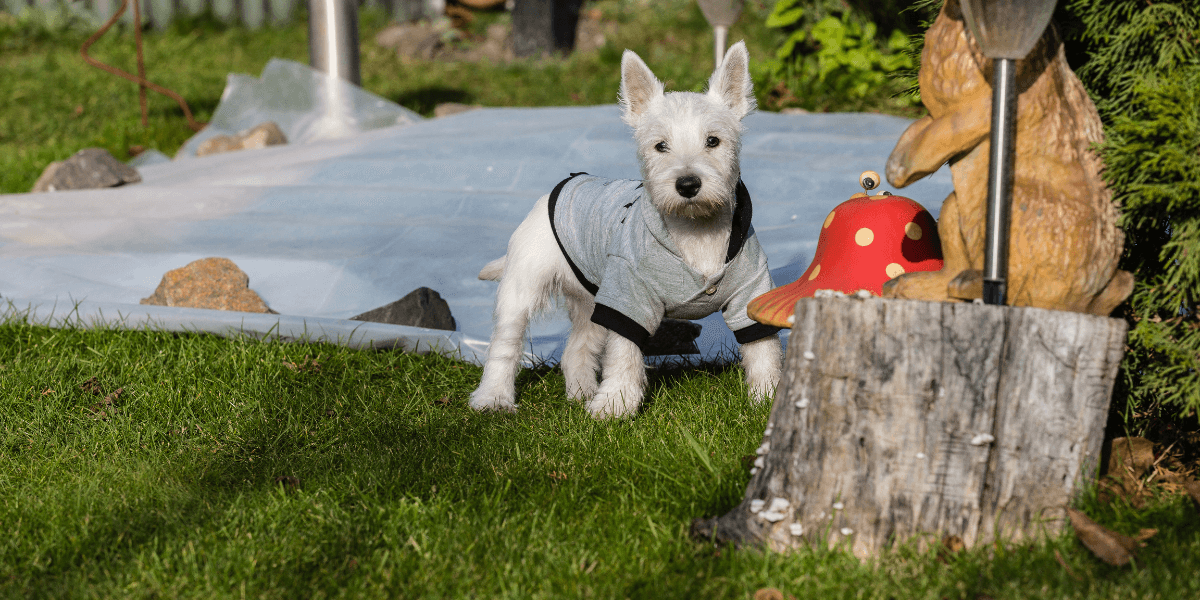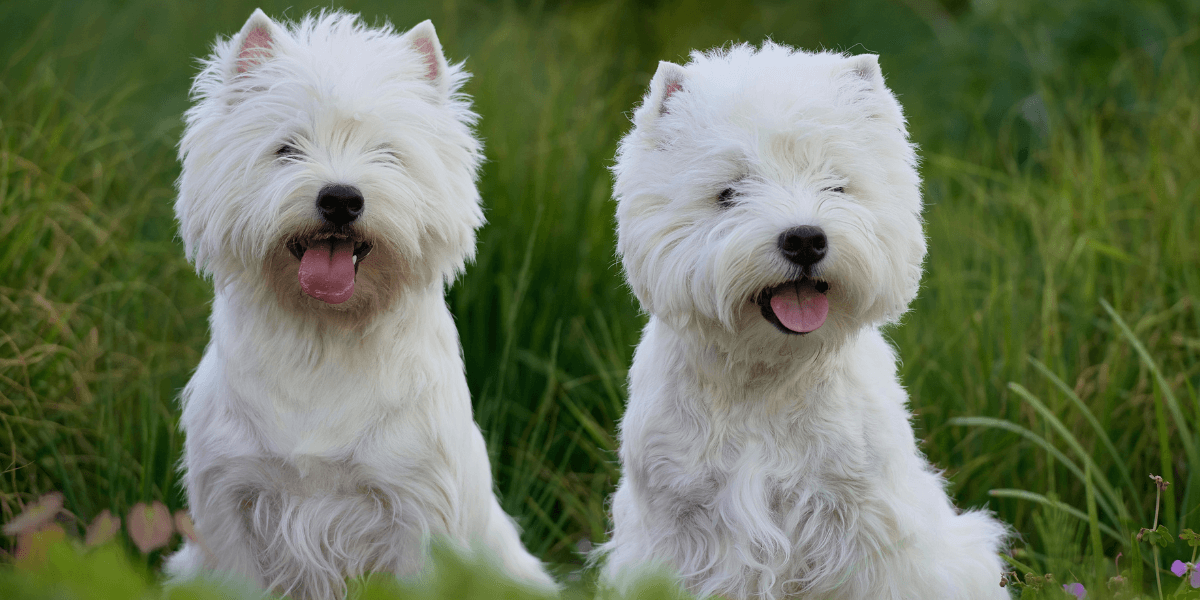Introduction
Understanding West Highland White Terrier temperament is crucial for new owners.
- Understanding their temperament helps in managing and training your Westie effectively
- Westies are affectionate, intelligent, and can be a bit stubborn at times
- They make great companions but require patience and consistency in training
- This guide explores the key traits of a Westie's temperament
- Discover what to expect and how to bring out the best in your furry friend
1. Playful and Energetic

Westies are known for their playful and energetic nature.
- Love for Play: Enjoys interactive games like fetch or tug-of-war
- Exercise Needs: Requires daily exercise to stay healthy and happy
- Indoor Activities: Thrives on indoor games and mental stimulation
- High Energy Levels: Always ready for a new adventure
- Likes Challenges: Enjoys activities that challenge their intelligence
- Boredom Prone: Can become destructive if not mentally stimulated
- Adaptable Play: Adapts play style to suit the environment
- Outdoor Fun: Loves outdoor activities and exploring new places
2. Affectionate and Loving

The West Highland White Terrier temperament includes a deeply affectionate nature.
- Cuddle Lovers: Enjoys snuggling with their owners
- Loyal Companions: Forms deep bonds with family members
- Attention Seekers: Craves attention and companionship
- Protective: Shows protective instincts towards their loved ones
- Good with Kids: Generally friendly and patient with children
- Social Creatures: Loves being around people and other pets
- Emotional Sensitivity: Sensitive to their owner’s emotions
- Companionable: Prefers being by their owner’s side
3. Intelligent and Curious

Westies are known for their sharp minds and curiosity about their surroundings.
- Quick Learners: Picks up commands and tricks quickly
- Curious Nature: Always exploring and investigating new things
- Problem Solvers: Enjoys figuring out puzzles and challenges
- Observation Skills: Pays attention to changes in their environment
- Training-Friendly: Responds well to consistent, positive training methods
- Mind Games: Enjoys brain games and interactive toys
- Alert and Aware: Always on the lookout for something interesting
- Adventurous Spirit: Loves discovering new places and experiences
4. Independent and Confident

The West Highland White Terrier temperament shows strong independence and confidence.
- Self-Assured: Confident in new situations or environments
- Independent Thinkers: Likes to make their own decisions
- Can Be Stubborn: May show stubborn behavior during training
- Handles Alone Time: Can tolerate being alone for short periods
- Bold Demeanor: Unafraid to face challenges or unfamiliar situations
- Needs Guidance: Benefits from consistent, clear guidance
- Determined Attitude: Persistent in getting what they want
- Requires Leadership: Thrives under firm, confident leadership
Discover effective training techniques to manage your Westie's independence and confidence.
5. Alert and Watchful

Westies are naturally alert and make excellent watchdogs.
- Vigilant Nature: Always aware of their surroundings
- Quick to Bark: Will bark to alert you of strangers or unusual noises
- Territorial Instincts: Protective of their home and family
- Observant Eyes: Keen eyesight to spot movement or changes
- Good Hearing: Excellent hearing, making them quick to react
- Fearless Watchdogs: Not afraid to defend their territory
- Responsive: Quickly responds to commands or signals
- High Awareness: Attentive to changes in their environment
6. Sociable and Friendly

Westies are generally sociable and enjoy interacting with people and pets.
- Friendly Demeanor: Approaches new people and pets with curiosity
- Enjoys Company: Loves being around others, both humans and animals
- Adaptable Social Skills: Adapts well to different social settings
- Playful with Others: Enjoys playing with other dogs
- Needs Socialization: Benefits from early socialization with pets and people
- Tolerant of Crowds: Generally comfortable in crowded places
- Happy Greeter: Greets guests with enthusiasm
- Affectionate Behavior: Shows affection through playful behavior
Learn how Westies' sociable nature makes them great companions for families and other pets.
7. Stubborn but Trainable

Westies can be stubborn but respond well to positive reinforcement.
- Stubborn Streak: Can be strong-willed during training
- Loves Rewards: Motivated by treats, praise, and positive reinforcement
- Needs Patience: Requires patience and consistency from their owner
- Routine Training: Benefits from regular training sessions
- Dislikes Repetition: Gets bored with repetitive tasks quickly
- Learns Best with Fun: Responds well to fun, engaging training methods
- Strong-Willed Learner: Can be persistent in learning new things
- Progressive Training: Needs training that evolves with their learning
Master training strategies to overcome your Westie's stubbornness and enhance their trainability.
FAQs
1. Are Westies good with children?
- Yes, they are generally friendly and patient with children
2. Do Westies need a lot of exercise?
- Yes, they require daily exercise to stay healthy and happy
3. Are Westies easy to train?
- They are intelligent but can be stubborn; positive reinforcement works best
4. Do Westies make good watchdogs?
- Yes, they are naturally alert and protective
5. Are Westies friendly with other pets?
- Generally, they are sociable and friendly with other pets
6. Can Westies be left alone for long periods?
- They can tolerate short periods but prefer companionship
7. Do Westies have a lot of energy?
- Yes, they are energetic and enjoy playtime and activities
Conclusion
- Knowing the West Highland White Terrier temperament helps you understand their needs
- Westies are playful, loving, and intelligent, but require consistent training
- They thrive in an environment that provides both mental and physical stimulation
- Regular socialization helps them maintain their friendly demeanor
- Patience, positive reinforcement, and engagement are essential for training
- Follow this guide to bring out the best in your Westie and enjoy their unique traits




